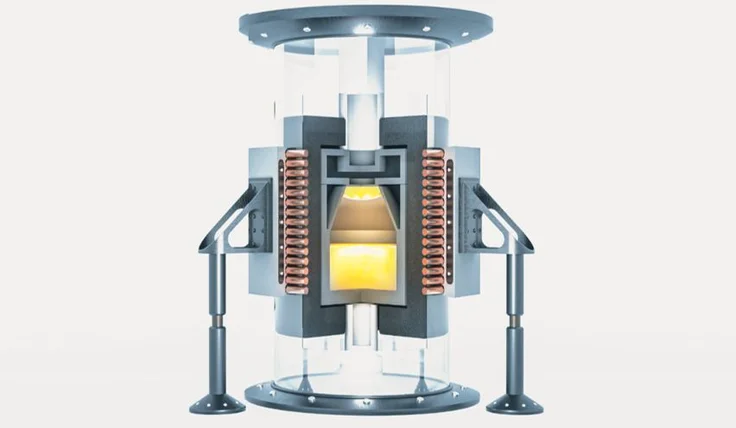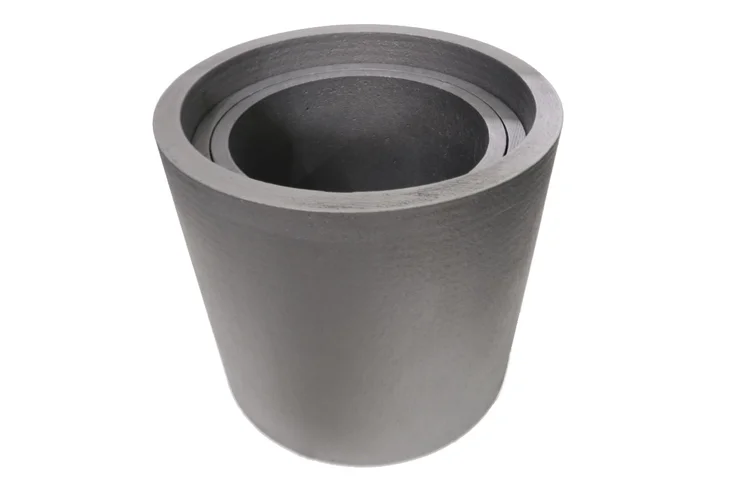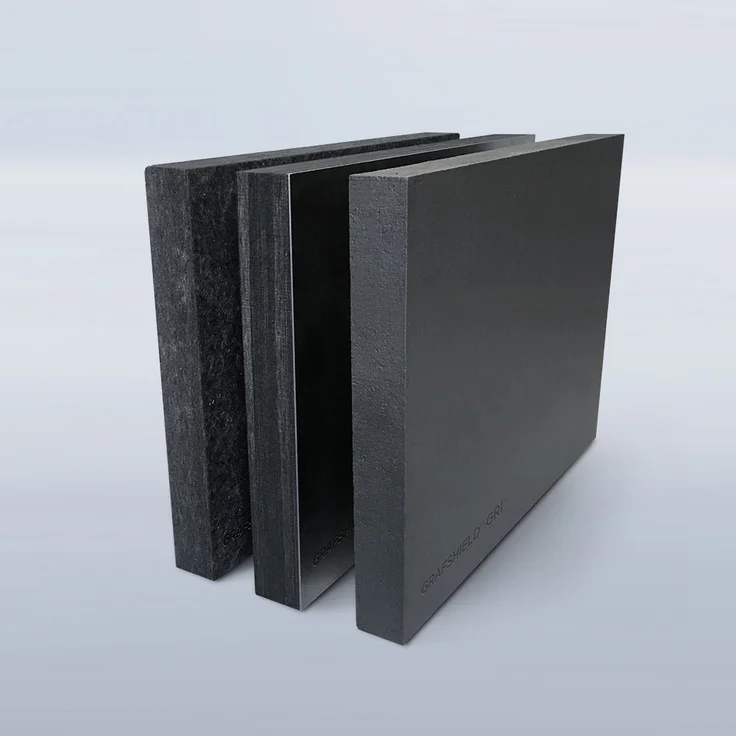Insulation for SiC growth by PVT
Mersen’s superior insulating felts CALCARB® Edge make it a key player in this new technology.
Mersen’s superior insulating felts CALCARB® Edge make it a key player in this new technology.
Brochures
pdf - 13.38 MB
-
Silicon carbide (SiC) growth by physical vapor transport (PVT)
Silicon carbide (SiC) growth by physical vapor transport (PVT) is a process used to produce high-quality SiC crystals.
Key steps:
- Sublimation: SiC source material is heated to high temperatures (typically above 2000°C) in a graphite crucible, causing it to sublimate (transition directly from solid to vapor).
- Transport: The vaporized species of silicon and carbon are transported through the gas phase, then the vapor condenses onto a cooler seed crystal, typically located at the top of the crucible, and crystallizes to form a new SiC layer. A carefully controlled thermal gradient drives the vapor from the source to the seed, which is essential for uniform crystal growth. Over time, the SiC crystal builds up layer by layer, achieving desired thickness and quality.
PVT is favored for its ability to produce large, high-purity SiC crystals, which are essential for electronic and optoelectronic applications.

-
CALCARB® Edge
In the PVT process, insulation is critical
-
Properties of insulation
Temperature Control
Insulation helps maintain the high temperatures needed for SiC sublimation and deposition. Consistent temperature is crucial for uniform crystal growth.
Thermal Gradient
Proper insulation ensures a stable thermal gradient, which is essential for directing the flow of vaporized species from the source material to the seed crystal, promoting even growth.
Energy Efficiency
Good insulation minimizes heat loss, reducing energy consumption and costs while maintaining the required conditions for SiC growth.
Contamination Prevention
Insulating materials often also act as barriers against impurities that could otherwise incorporate into the crystal, affecting its quality.
Stress Reduction
By maintaining uniform temperatures, insulation helps reduce thermal stress within the growing crystal, decreasing the likelihood of defects and dislocations.
Overall, effective insulation is crucial for achieving high-quality SiC crystals with optimal physical and electronic properties.
-
CALCARB® Edge by MERSEN key advantages
- Unique Cylinder within Cylinder (CwC) construction gives optimal cost of ownership to the customer with significant energy savings vs alternative solutions available on the market
- Our unique process and material combination provides a narrow Standard Deviation on thermal and mechanical properties tolerance
- Allow precise process control at high temperature (2,400°C)
-
CALCARB® Edge by MERSEN for extreme insulation performance
CALCARB® Edge by MERSEN provides the best thermal insulation properties at a high temperature, making it the material of choice among our customers concerned about the energy efficiency of their process.
CALCARB® Edge by MERSEN to optimize the efficiency of your processes
CALCARB® Edge by MERSEN rigid insulation is much easier to machine than other high temperature insulation materials. Its homogeneity, combined with its ability to be machined into very complex shapes, enables precise thermal gradient control in high temperature processes.
CALCARB® Edge by MERSEN for an extended service life, even in the most aggressive environments
Mersen has developed a complete range of processes designed to reinforce the resistance of CALCARB® insulation in aggressive environments:
- Pyrocarbon infiltration-CVI protects the material from the action of reactive gases to its core.
- A unique development now allows the CALCARB® insulation using silicon carbide SiC-CVI to reduce the felt's reactivity tohydrogen above 1,000°C.
- To ensure gas impermeability and significantly reduce the generation of dust through erosion,CALCARB® can be surface coated by Calfoil,Calcoat and Calcoat CVD processes.



